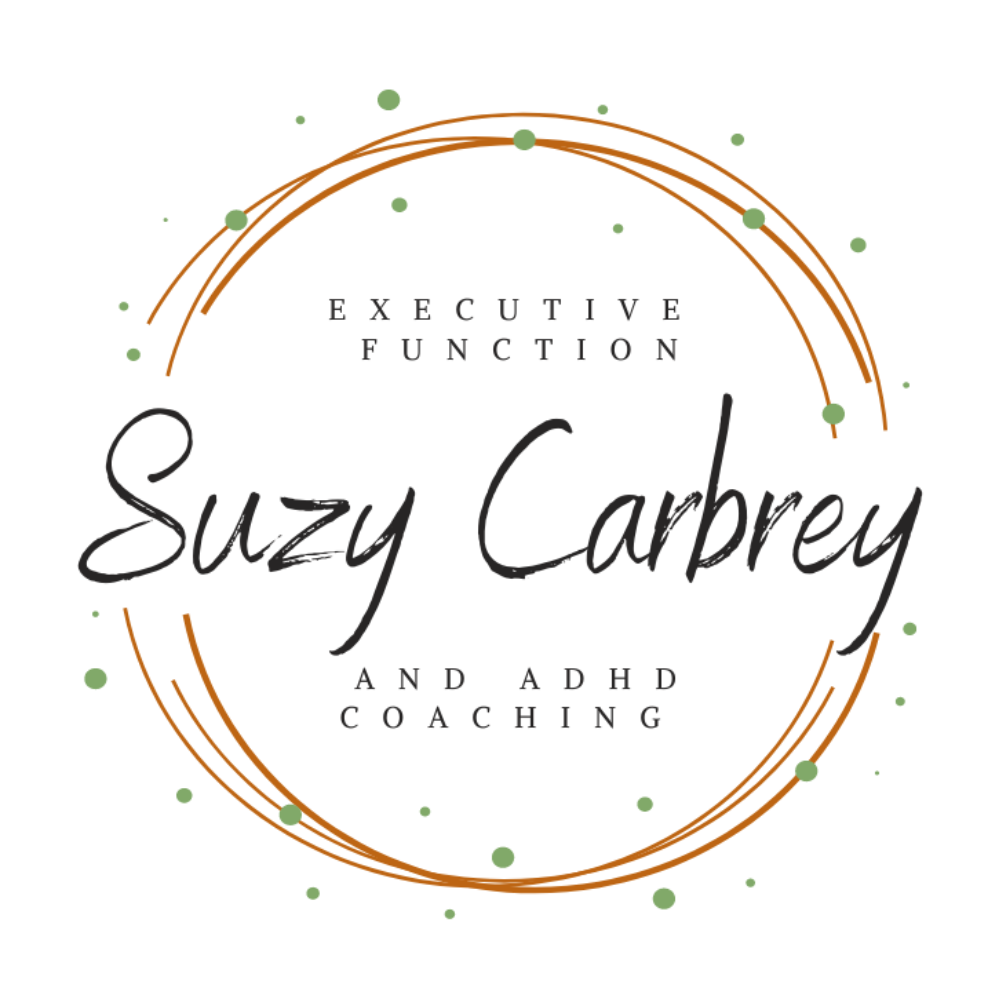If you’ve ever felt frustrated when plans change at the last minute, or when your partner folds the towels “the wrong way,” you’re not alone. Many adults with executive functioning challenges, including ADHD, find that flexibility in thinking and behavior doesn’t always come naturally, especially in relationships. That’s not a flaw. It’s a reflection of how your brain processes change, transitions, and competing demands.
The good news? Mental flexibility is a skill you can strengthen. And practicing it in your relationships can lead to better communication, fewer conflicts, and more harmony, without sacrificing who you are.
In this post, we’ll unpack what mental flexibility means in relationships, how to recognize when rigidity is taking over, and how to pivot with intention using simple strategies and prompts.
What Is Mental Flexibility?
Mental flexibility is your brain’s ability to shift gears, adapt to new information, consider different perspectives, and tolerate uncertainty. It’s a core executive function that helps you navigate daily life with less stress, and it’s especially important in relationships, where other people’s needs, thoughts, and preferences come into play.
When we’re mentally flexible, we can:
- Let go of needing things to go a certain way
- Pause and consider another person’s point of view
- Adjust our behavior without feeling like we’re losing control or abandoning ourselves

By contrast, mental rigidity often shows up as:
- Insisting on doing things “the right way” (aka: your way)
- Feeling overwhelmed or irritated when routines are disrupted
- Getting stuck in black-and-white thinking (e.g., “If we don’t do it my way, it won’t work”)
Sound familiar? You’re not alone. These reactions often stem from how your nervous system processes stress and how your brain tries to create structure in an unpredictable world.
Why Relationships Challenge Mental Flexibility
Relationships naturally involve differences in routines, preferences, energy levels, and communication styles. When executive functioning is already taxed by work, parenting, daily overwhelm, or sensory input, it’s even harder to shift gears in the moment.
For example:
- You’ve planned a productive Saturday, but your partner suggests a spontaneous outing.
- You load the dishwasher in a specific way, and your roommate rearranges it “incorrectly.”
- You feel responsible for managing the household, but your partner has a slower pace or a different task initiation style.
When your nervous system is under stress, even small changes can feel like threats. Your brain wants to protect you by sticking to familiar patterns, so it digs in. But rigidity often creates tension, especially if others feel unseen, controlled, or dismissed.
Recognizing When You’re Under Stress (And What That Means for Flexibility)
One of the first steps to becoming more mentally flexible is recognizing your own stress signals. When you’re dysregulated, tired, overstimulated, hungry, or emotionally flooded, your ability to adapt shrinks.
Common signs your flexibility is running low:
- You feel irritable or snappy
- You find yourself saying, “I just need things to go as planned”
- Your body tenses up at the suggestion of a change
- You’re hyper-focused on being “right” or “efficient”
- You replay conversations or grievances in your head
When these signs pop up, try asking yourself:
- What’s the real pressure here?
- Am I trying to protect my energy, my identity, or my sense of control?
- Could I pause instead of reacting?
Mental Flexibility is a Balance
It’s important to say: mental flexibility doesn’t mean being a doormat or giving up your needs.
It means learning to pause before reacting, consider alternatives without panic, and shift when it serves the relationship. You’re choosing how you want to respond, rather than reacting from autopilot.
Let’s say you prefer to do chores in a specific order and time. Your partner, on the other hand, moves more slowly or doesn’t mind the mess. You might feel tempted to either:
- Do everything yourself and resent them
- Demand they do it your way

But flexibility might look like:
- Asking: “What’s the outcome that matters most here?”
- Considering: “Does it have to happen my way, or can we try a different rhythm?”
- Agreeing on shared goals while staying open to different approaches
Examples of Mental Flexibility in Action
Here are a few common relationship challenges, along with how mental flexibility can help shift the dynamic:
1. Changing Plans Last Minute
Scenario: You’ve planned to work on a project tonight. Your partner unexpectedly wants to go out for dinner.
Inflexible reaction:
“You’re ruining my plan. I can’t switch gears right now.”
Flexible mindset:
“My initial plan mattered for a reason. Can I express that, and also consider this new idea?”
Try saying:
“I was set on working tonight, but let me think, what would make dinner feel doable for me?”
2. Differing Task Completion Styles
Scenario: You clean in bursts of hyperfocus. Your partner cleans a little each day or not at all unless prompted.
Inflexible reaction:
“Why can’t you just do it when I do? I can’t relax until it’s all done.”
Flexible mindset:
“We have different brain wiring. Can we co-create a plan that fits both of us?”
Try saying:
“I know I go into overdrive. Could we make a quick list of things to split up so it doesn’t all land on me?”
3. Managing Shared Responsibilities
Scenario: You feel like you’re always the one keeping track of appointments, groceries, and housework.
Inflexible reaction:
“I have to do everything because you won’t.”
Flexible mindset:
“Maybe we need clearer communication about what’s on our minds and plates.”
Try saying:
“Can we do a 10-minute Sunday check-in to plan the week and make sure we’re dividing things fairly?”
Prompts for Practicing Mental Flexibility
These prompts are centered around what’s working, what’s possible, and how to move forward and can help you pivot gently when you feel stuck in old patterns:
- “What would ‘slightly more flexible me’ do in this moment?”
This lets you move toward change without expecting perfection. - “Have we had a moment in the past where we figured this out well?”
Look for past successes and build on them. - “What’s the smallest next step toward understanding this person’s perspective?”
You don’t need to agree, just get curious. - “How will I know if this approach is helping our relationship?”
Track outcomes to stay motivated and grounded. - “What do I want to protect here (my values, my time, my energy) and is there another way to do that?”
This reframes the situation from conflict to clarity.

Practical Strategies to Build Your Flexibility Muscle
- Pause Before Responding
When something frustrates you, take 5–10 seconds (or minutes) to breathe and regulate. Let your logical brain come back online. - Name Your Needs
Practice saying, “Here’s what I need to feel okay with this plan,” or “I’m open to this, but I need X to make it work.” - Create Routines for Communication
A weekly check-in or shared to-do list reduces the mental load and creates a shared mental model. - Practice Micro-Shifts
Try taking a different route home, adjusting your bedtime by 15 minutes, or letting someone else cook, even if it’s not how you’d do it. These small disruptions can train your brain to be more resilient to change. - Use Visual Supports
Post shared calendars, lists, or routines to reduce mental clutter. When everyone knows the plan, it’s easier to flex when things shift.
Conclusion: Flexibility Is a Relationship Strength Not a Personality Flaw
If you’ve ever felt like you’re “too rigid” or “not go-with-the-flow enough,” it’s time to shift that story. Mental flexibility isn’t about being laid-back all the time. It’s about being grounded enough in yourself that you can bend when needed, without breaking, burning out, or abandoning your values.
For adults with ADHD and executive functioning challenges, this flexibility is often learned, not instinctive. It’s a skill that gets stronger through practice, just like time management, emotional regulation, or task initiation. And in relationships, practicing mental flexibility is one of the most impactful things you can do to build connection, reduce resentment, and create a sense of partnership that works for both people.

You don’t have to change who you are to have smoother communication, less tension, or a more supportive household. You just need tools to help you:
- Recognize when your nervous system is pulling you toward rigidity
- Pause before reacting on autopilot
- Stay curious about how your brain and your partner’s brain might approach things differently
- Create space for shared solutions that still honor your needs
Start small. Maybe it’s pausing when plans change before immediately saying “no.” Maybe it’s noticing when you’re gripping tightly to a task getting done “your way” and asking if it really needs to be. Each time you pivot with purpose, you’re strengthening a part of your executive functioning that builds resilience, not just in your brain, but in your relationships, too.
So ask yourself this:
“What’s one moment this week where I could practice just a little more mental flexibility?”
That one shift might open a door to more connection, more calm, and more ease, exactly where you need it most.
Learn more with Online Coaching for Executive Functioning / ADHD
Ready to gain control and enhance your executive functioning? As an experienced and compassionate coach, I specialize in providing support for executive functioning and ADHD. To embark on your journey, please reach out to me at 708-264-2899 or email hello@suzycarbrey.com to schedule a FREE 20-minute discovery call consultation.
With a background as a speech-language pathologist, I have a strong foundation in executive functioning coaching. My graduate degree program in SLP placed a significant emphasis on cognition, including executive functions, and I have years of experience in medical rehabilitation, providing cognitive-communication therapy. Additionally, I have completed an ADHD Services Provider certification program, I am Solutions-Focused Brief Therapy Diamond Level 1 certified and I am trained in the Seeing My Time® executive functioning curriculum.
Experience the convenience and effectiveness of online coaching, backed by studies that demonstrate equal results to in-person services. Parents, professionals, and emerging adults love the convenience and privacy of receiving coaching from their own homes.
Whether you reside in Chicago, Milwaukee, Indianapolis, Kansas City, or anywhere else around the globe, I am here to assist you. Schedule your discovery call consultation today, and I eagerly anticipate the opportunity to work with you!
Please note that although I am a certified speech-language pathologist, all services Suzy Carbrey LLC provides are strictly coaching and do not involve clinical evaluation or treatment services. If you require a formal speech therapy evaluation and treatment, please inform me, and I can provide appropriate recommendations.

